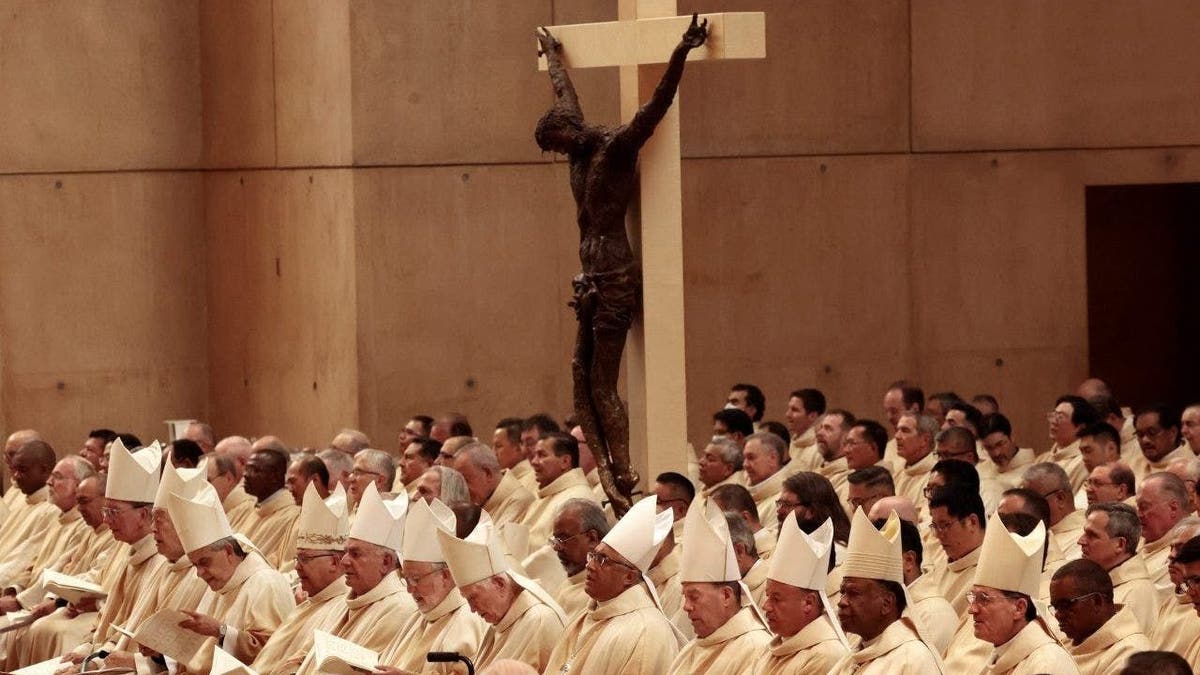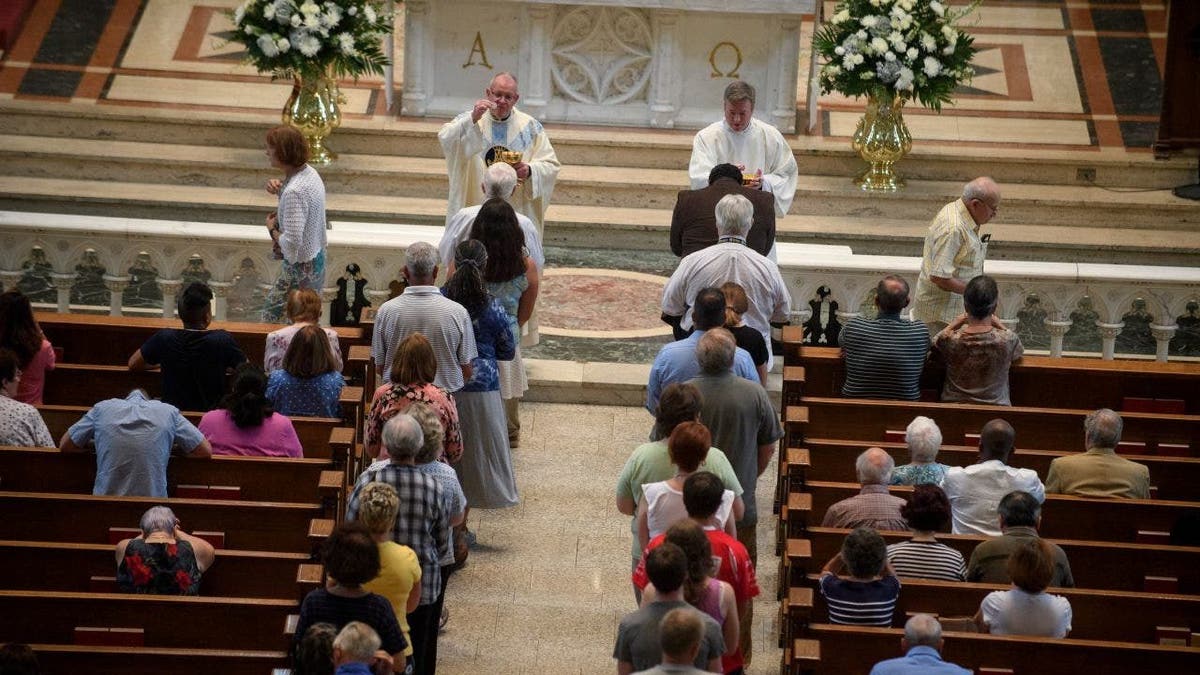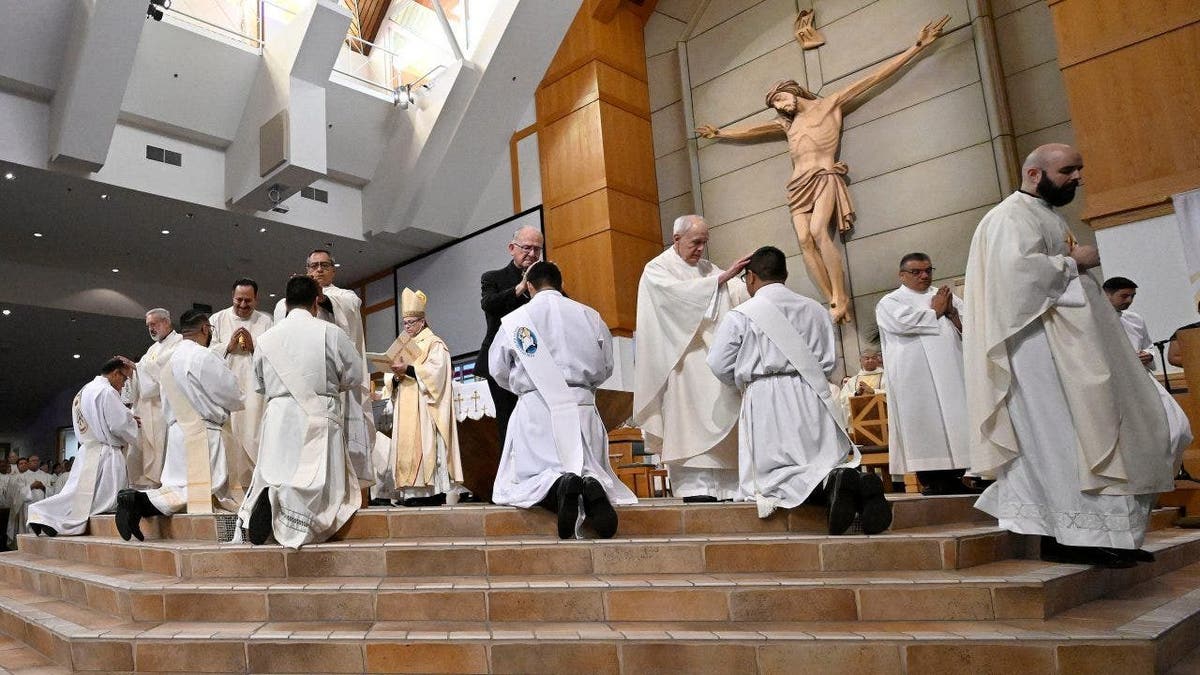Fox News Flash top headlines for November 9
Fox News Flash top headlines are here. Check out what's clicking on Foxnews.com.
A comprehensive study polling thousands of Catholic priests found that new clerics identifying as politically "liberal" or theologically "progressive" have "all but vanished" from seminaries in the United States.
The study was produced by The Catholic University of America's "The Catholic Project" and draws on responses from 131 bishops, 3,516 priests and "in-depth interviews of over 100 priests."
"Simply put, the portion of new priests who see themselves as politically 'liberal' or theologically 'progressive' has been steadily declining since the Second Vatican Council and has now all but vanished," the survey reported.
PRO-LIFE ACTIVIST MARK HOUCK FILES LAWSUIT AGAINST BIDEN DOJ OVER ARREST

Priests and bishops fill the Cathedral of Our Lady of the Angels as Archbishop José H. Gomez presides over the ordination of four new auxiliary bishops for the Archdiocese of Los Angeles. (Allen J. Schaben/Los Angeles Times via Getty Images)
"More than half of the priests who were ordained since 2010 see themselves on the conservative side of the scale," The Catholic Project reports. "No surveyed priests who were ordained after 2020 described themselves as ‘very progressive.’"
The study found that among priests ordained since 2020, over 80% identify themselves as "conservative/orthodox" regarding theology.
This is a sharp contrast to priests ordained before 1960, over 60% of whom identified as "progressive" or "very progressive."
REPUBLICAN SENATOR PRESSES STATE DEPARTMENT FOR INFO ON BISHOP IMPRISONED BY ORTEGA REGIME

Parishioners worship during a Mass to celebrate the Assumption of the Blessed Virgin Mary at St. Paul Cathedral in Pittsburgh, Pennsylvania. (Jeff Swensen/Getty Images)
Political self-identification proved more accommodating to nuance, but still heavily favored conservative beliefs.
Roughly 52% of recently-ordained priests identified as "conservative" or "very conservative," while 44% described themselves as "moderate."
The National Study of Catholic Priests previously released the first portion of their findings in October 2022, following up that data with a new batch of findings released Tuesday.
CLICK HERE TO GET THE FOX NEWS APP

Priests perform the laying on of hands as seven transitional deacons are ordained during Mass at St. Paul the Apostle Catholic Church in Chino Hills, California. (Will Lester/MediaNews Group/Inland Valley Daily Bulletin via Getty Images)
The study did not attempt to decipher the cause of such drastic changes in priests' ideological framework in recent years, but offered the Second Vatican Council and the abuse crisis as "watershed moments" based on clerics' testimony.
"The causes and consequences of these shifts in the American presbyterate are no doubt complex. How these dynamics play out in interactions among priests in a given diocese or religious order is beyond the scope of this study," the report states. "However, our qualitative interviews suggested that priests themselves view these shifts through the lens of two watershed moments: the Second Vatican Council and the clergy sexual abuse crisis of 2002."

